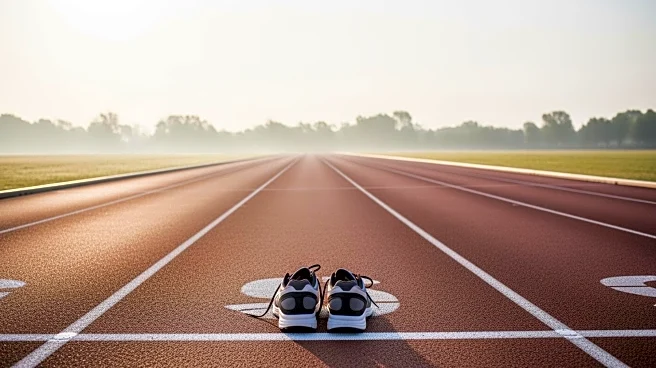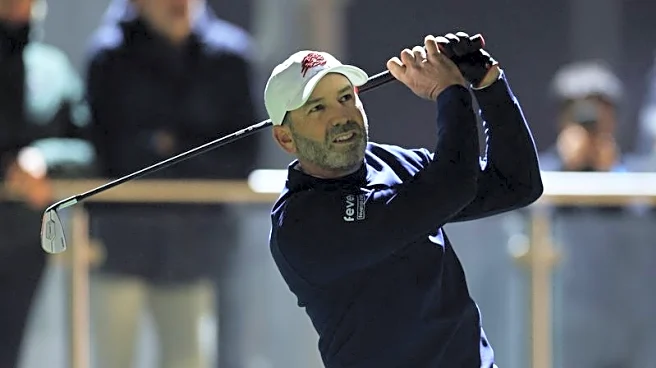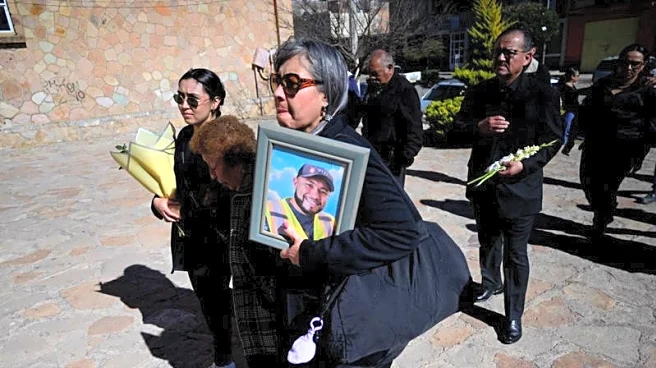What's Happening?
The 29th Annual Sri Chinmoy Self-Transcendence 3,100 Mile Race, known as the world's longest footrace, concluded in Jamaica, Queens. The race, which took place from August 30 to October 20, involved participants
running a half-mile loop around Thomas Edison High School. This year, eight out of ten runners completed the grueling 3,100-mile distance, equivalent to running from New York to California plus 11 marathons. Italian runner Andrea Marcato emerged victorious, completing the race in 46 days, 14 hours, 37 minutes, and 45 seconds. The race, conceived by Sri Chinmoy in 1997, aims to promote spiritual awakening through intense physical exertion.
Why It's Important?
The Sri Chinmoy Self-Transcendence 3,100 Mile Race is significant as it challenges participants to push beyond physical limits, promoting a blend of physical endurance and spiritual growth. The event attracts international participants, highlighting the global appeal of ultra-endurance sports. It also brings attention to the unique cultural and spiritual aspects of such events, which are not just about physical achievement but also about personal and spiritual development. The race's completion by diverse participants underscores the universal human capacity for resilience and determination.
What's Next?
Future iterations of the race are likely to continue attracting international participants, fostering a global community of ultra-endurance athletes. The event may inspire similar races worldwide, promoting the philosophy of self-transcendence through physical challenges. Organizers and participants may also explore ways to increase public engagement and awareness of the race's spiritual and cultural significance.
Beyond the Headlines
The race's emphasis on spiritual growth through physical exertion raises questions about the role of sports in personal development. It challenges conventional views of athletic competition by prioritizing inner transformation over external victory. This approach may influence how other sports and events are structured, potentially leading to a broader acceptance of sports as a means of holistic personal growth.











